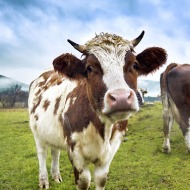
New roadmap sets out changes to agricultural policy beginning 2021
The BVA has published a statement in support of a new plan introduced by the Government on Monday 30 November.
The transitional plan outlines a new system for farming in England, intended to reward farmers for higher standards of animal welfare and environmental protection measures.
The BVA has assisted in informing animal health and welfare goals within the Path to Sustainable Farming: An Agricultural Transition Plan 2021 to 2024, and the new Agriculture Act.
James Russell, BVA president, commented: “We understand that farmers and vets will be feeling anxious about the phasing out of direct payments.
“That is why it is good to see this document out in the public domain and seeing more detail of how England will transition from the current system to a set of schemes supporting public goods.”
The new roadmap is created by the Department for Environment, Food and Rural Affairs (Defra). It sets out changes that will come into force over a seven year period, with the aim of farmers being paid ‘public money for public goods' by 2028.
Mr Russell stressed the critical nature of the implementation phase of the plan, adding: “The new document highlights the importance of the vet-farmer relationship and it is essential that these changes work in practice for our members and our farming colleagues.
“Although the publication of this document has given us some clarity on what will be coming up, we look forward to building on it. In the meantime, we encourage our members to work closely with their farm clients to start planning for the changes ahead.
He concluded: “As different post-CAP agricultural policies are rolled out in the four nations of the UK, we reiterate our call for cross-government mechanisms to be put in place to ensure coordination on animal health and welfare, biosecurity, and surveillance.”



 The Animal and Plant Health Agency (APHA) has updated its online reporting service for dead wild birds.
The Animal and Plant Health Agency (APHA) has updated its online reporting service for dead wild birds.